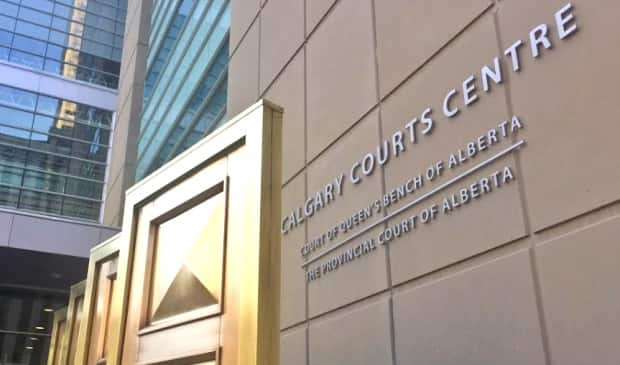Southern Alberta churches, residents file court challenge to COVID-19 rules as cases surge
A pair of southern Alberta churches and three individuals have launched a court challenge, arguing that the province's COVID-19 restrictions are an infringement of their constitutional rights.
The application was filed in the Court of Queen's Bench in Calgary on Friday, the same day that Alberta recorded 15 additional deaths and a record high test positivity rate of 10.5 per cent.
"The vast majority of all the restrictions in the public health orders do violate one or more constitutional rights," said James Kitchen with the Justice Centre for Constitutional Freedoms, one of the lawyers representing the applicants. So, yes, our clients want to see them all removed."
His clients are seeking to have a court declare that the various public health orders can't be enforced. He said there needs to be a strong reason for limiting people's liberties and contends that there isn't one in this case.
To date, 615 people have died of COVD-19 in Alberta. As of Sunday, there were 601 people in hospital, including 100 in intensive care. The day saw 1,836 new cases recorded, bringing the total active cases to 19,484.
'Remote possibility' of success, says prof
In the application, Heights Baptist Church in Medicine Hat and Northside Baptist Church in Calgary, along with three individuals argue that a number of their constitutional rights have been violated by various public health measures put in place to stop the spread of COVID-19.
These include limiting peoples' ability to gather for both social and religious reasons, along with travelling and conducting business or expressing themselves. None of the claims made in the application have been proven in court.
Eric Adams, a law professor at the University of Alberta in Edmonton, said it's a "remote possibility at best" that such an application, especially one that casts such a wide net, could succeed.

"In these kinds of cases, governments have, as you might hope and expect, a wide constitutional mandate to try and prevent a crisis from occurring or to prevent the further escalation of a crisis," he said.
Adams said it's not required that governments have absolute proof that each public health measure is effective or necessary when they are trying to stave off consequences that would dwarf harms caused by the restriction of rights, such as limiting social gatherings or requiring masks to be worn.
"No amount of pointing to your rights infringements will win a case in a constitutional system which specifically contemplates that rights can be reasonably limited," he said.
Province preparing for the worst
The application questions whether or not there is adequate evidence that COVID-19 has created an emergency that is beyond the normal scope of illness and death in the province.
CBC has interviewed several medical professionals who have expressed alarm at the growing number of COVID-19 cases and hospitalizations, sharing concerns about overloading the health system.
Last week, the province acknowledged it is preparing for the worst. Alberta has asked the federal government for two field hospitals, and the Red Cross for two more.
Alberta hospitals are preparing to double-bunk critically ill patients, revamp operating and recovery rooms and reassign staff to treat an expected surge of COVID-19 patients destined for intensive care units.
Alberta Health Services has asked hospitals in Calgary to begin rationing oxygen.
In November, Premier Jason Kenney announced restrictions banning indoor private social gatherings as well as additional limitations on capacity in many businesses and outdoor gatherings.
Still, many businesses are allowed to remain open, including restaurants, malls, and casinos. Those found in violation of the rules can be ticketed.
Alberta is not under a lockdown, and Kenney faced criticism from some who wanted to see tighter restrictions imposed. Alberta also remains the only jurisdiction in Canada without a province-wide mask mandate.
'Which is worse?
Still, Kitchen said his clients feel like they are in lockdown and living in a "prison society."
Kitchen said people who disagree with government and health officials and the "hysteria narrative" aren't getting a fair opportunity to air their views. He acknowledged that many people have died but said it has to be balanced against the harms the restrictions are causing to the economy, mental health and other aspects of people's lives.
"The question is which is worse? Because there's no way out of this that's going to be perfect," he said.
Adams said there is no question that the restrictions have negative impacts but said that's the tradeoff governments are elected to make when dealing with a crisis, such as a pandemic.
"The question is, when you are dealing with a public health emergency, does the government have the capacity to pursue the greater good in the name of the public interest? And there, I think the constitution clearly gives them wide latitude to do exactly that," Adams said.
Kitchen said he is hopeful the matter will be heard before Christmas.

